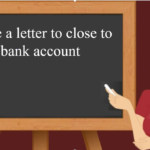In grammar, a clause is a group of words that contains a subject and a verb. Clauses can be independent, meaning they can stand alone as complete sentences, or dependent, meaning they rely on an independent clause to form a complete thought. There are two main types of clauses: independent clauses and dependent clauses.
1. Independent Clauses:
An independent clause is a complete thought that can stand alone as a sentence. It expresses a complete idea with a subject and a predicate.
Examples of Independent Clauses:
-
She went to the store.
- Explanation: This independent clause expresses a complete thought and can stand alone as a sentence.
-
The sun was setting, casting a warm glow over the mountains.
- Explanation: “The sun was setting” is an independent clause, and the additional phrase adds more detail.
-
They laughed and enjoyed their time together.
- Explanation: “They laughed” is an independent clause, and “enjoyed their time together” complements the thought.
2. Dependent Clauses:
A dependent clause, also known as a subordinate clause, cannot stand alone as a complete sentence. It relies on an independent clause to form a complete thought.
Examples of Dependent Clauses:
-
After the rain stopped,
- Continuation: we went for a walk.
- Explanation: “After the rain stopped” is a dependent clause that needs the independent clause “we went for a walk” to complete the thought.
-
Because she forgot her umbrella,
- Continuation: she got wet.
- Explanation: “Because she forgot her umbrella” is a dependent clause that explains the reason for the independent clause “she got wet.”
-
Although he studied hard,
- Continuation: he didn’t perform well on the exam.
- Explanation: “Although he studied hard” is a dependent clause that contrasts with the independent clause “he didn’t perform well on the exam.”
3. Types of Dependent Clauses:
Dependent clauses can be categorized based on their function. Common types include:
a. Adjective (Relative) Clauses:
- These clauses provide additional information about a noun in the main clause.
Examples:
- The book that I borrowed from the library is fascinating.
- The person who called you is waiting outside.
- She wore the dress that she bought last week.
b. Adverbial (Subordinate) Clauses:
- These clauses modify or provide additional information about the main clause.
Examples:
- When the bell rang, the students rushed out of the classroom.
- Because it was raining heavily, the event was postponed.
- If you finish your homework, you can join us for dinner.
c. Noun (Nominal) Clauses:
- These clauses function as nouns within the sentence.
Examples:
- What he said surprised everyone in the room.
- Who will win the competition is still uncertain.
- Whether she attends the party is up to her.
Understanding the distinction between independent and dependent clauses, as well as the types of dependent clauses, is crucial for constructing clear and well-structured sentences.
A) After the movie ended
B) They went out for ice cream
C) After the movie
Show/Hide
Answer: B) They went out for ice cream
Explanation: The independent clause that can stand alone as a complete sentence is “They went out for ice cream.”
A) Adjective Clause
B) Adverbial Clause
C) Noun Clause
Show/Hide
Answer: A) Adjective Clause
Explanation: “Who sang beautifully” provides additional information about the noun “singer” and functions as an adjective.
A) They decided to stay indoors
B) Because it was raining
C) To stay indoors
Show/Hide
Answer: B) Because it was raining
Explanation: “Because it was raining” is a dependent clause that cannot stand alone as a complete sentence.
A) Adjective Clause
B) Adverbial Clause
C) Noun Clause
Show/Hide
Answer: B) Adverbial Clause
Explanation: “When the bell rings” modifies the verb “leave” and functions as an adverbial clause indicating time.
A) Although it was cold
B) They decided to go for a hike
C) For a hike
Show/Hide
Answer: B) They decided to go for a hike
Explanation: The independent clause is “They decided to go for a hike,” which can stand alone as a complete sentence.
A) Adjective Clause
B) Adverbial Clause
C) Noun Clause
Show/Hide
Answer: C) Noun Clause
Explanation: “What he said” functions as a noun within the sentence, replacing the object of the verb “understand.”
A) Before the concert started
B) The audience was seated
C) The concert started
Show/Hide
Answer: A) Before the concert started
Explanation: “Before the concert started” is a dependent clause that provides temporal information.
A) Adjective Clause
B) Adverbial Clause
C) Noun Clause
Show/Hide
Answer: C) Noun Clause
Explanation: “Where she lives” functions as the direct object of the verb “tell” and acts as a noun clause.
A) The dog barked loudly
B) When the mailman approached
C) The mailman approached
Show/Hide
Answer: A) The dog barked loudly
Explanation: The independent clause is “The dog barked loudly,” expressing a complete thought.
A) Adjective Clause
B) Adverbial Clause
C) Noun Clause
Show/Hide
Answer: A) Adjective Clause
Explanation: “Whose car was stolen” provides additional information about the noun “person” and functions as an adjective.





